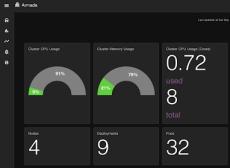- May 2024 (3)
- April 2024 (11)
- March 2024 (5)
- February 2024 (6)
- January 2024 (8)
- December 2023 (2)
- November 2023 (5)
- October 2023 (4)
- September 2023 (3)
- August 2023 (6)
- July 2023 (4)
- June 2023 (1)
- May 2023 (2)
- April 2023 (2)
- February 2023 (2)
- January 2023 (2)
- November 2022 (2)
- October 2022 (2)
- September 2022 (3)
- August 2022 (5)
- July 2022 (4)
- June 2022 (2)
- May 2022 (4)
- April 2022 (2)
- March 2022 (5)
- February 2022 (6)
- January 2022 (5)
- December 2021 (6)
- November 2021 (10)
- October 2021 (5)
- September 2021 (10)
- August 2021 (11)
- July 2021 (7)
- June 2021 (6)
- May 2021 (2)
- April 2021 (5)
- March 2021 (1)
- February 2021 (3)
- January 2021 (3)
- December 2020 (6)
- November 2020 (5)
- October 2020 (5)
- September 2020 (1)
- July 2020 (2)
- June 2020 (3)
- March 2020 (2)
- February 2020 (1)
Logit is an ISO 27001 certified centralised logging and metrics management company. We solve complex problems for many FTSE 100, Fortune 500 and other fast-growing clients alike. Our platform delivers you with a fully customised log and metrics solution based on Elasticsearch, Logstash and Kibana which is scalable, secure and compliant.
Logit also provides you with a high level view of the health and performance of applications and services across the organisation. Rationalise applications and confidently migrate to multi-cloud and hybrid cloud faster, with full support for AWS, Azure, GCP and on-premise.
Logit is a cloud native solution that scales on demand, allowing you to rapidly provision as many production-ready ELK stacks as required. All your stacks are isolated and can be individually managed, with the flexibility of defining teams and roles per stack. Each Logit ELK stack has its own dedicated resources, featuring highly available Elasticsearch, Logstash, Kibana and more.











